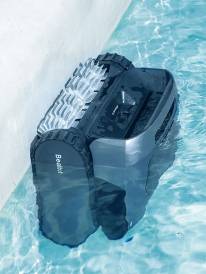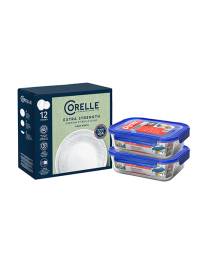Five Tips To Help You Manage Hay Fever This Season

Hay Fever Affects One In Five Australians
Hay fever affects one in five Australians, with 15 per cent of the population suffering from congested noses, watery eyes and constant sneezing during this time of year. Airborne pollen is a key cause of hay fever symptoms and with Spring in full swing, Discount Drug Stores Pharmacist and National Professional Services Manager, Stephenie Shea, offers her top five tips to help you manage your hay fever.
Keep windows and doors closed (if possible)
Flowers bloom and warmer weather increases our exposure to pollen and on windy days, the spread of pollen can easily agitate your symptoms. Reducing the amount of exposure to pollen where possible can help to manage the severity of hay fever symptoms.
'Pollen exposure is the highest after midday, so keeping your doors and windows closed both at home and in the car will limit your exposure and help you to manage and possibly reduce your symptoms," explains Ms Shea.
'Those who suffer from or have history of asthma should be extra cautious as exposure to pollen and can trigger asthma symptoms such as tightness in the chest."
Use saline based nasal sprays, rinsing devices or steam inhalations for congestion
Congestion is one of the most common symptoms of hay fever and it can increase your chances of sinus infections as a response to excess pollen in the air.
'To combat congestion and help reduce sinus infections, try using a saline based nasal spray. This will help clear the nasal passage and ease discomfort," Ms Shea says. 'A rinse device and steam inhalations are also effective methods to help relive nasal congestion and alleviate sinus irritation."
Wear sunglasses to protect your eyes
Many sufferers will experience either watery or dry eyes during hay fever season. Wearing sunglasses when you are outside during the day is an easy way to protect your eyes from pollen exposure.
'Pollen exposure can worsen your symptoms if you are suffering from dry eyes, leading them to feel extremely itchy. Sunglasses are a great barrier between your eyes and airborne pollen but if you do experience discomfort, lubricant eye drops can minimise irritation. Antihistamine eye drops work best to soothe itchy and watery eyes."
Regularly bathe your cats and dogs
Dogs and cats can bring pollen into your home so be sure to give your pets regular baths and brush them frequently to remove loose hair – but be sure to do this outside! Washing your pet's bed and soft toys on a regular basis will ensure pollen exposure is reduced. You should also consider establishing a pet-free zone in your home to minimise the spread of pollen.
Avoid being outdoors before and during thunderstorms
During thunderstorms rain causes humidity in the air, resulting in pollen grains to burst open and spread through the air. High levels of airborne grass pollens can exacerbate hay fever symptoms and may even trigger asthma flare-ups.
According to Ms Shea, 'Thunderstorms and weather changes can trigger huge amounts of small pollen allergen particles to enter the air, easily penetrating our airways and eyes. Avoid being outdoors just before or during thunderstorms especially during Spring and throughout the Summer months."
Have You Seen This?
MORE






